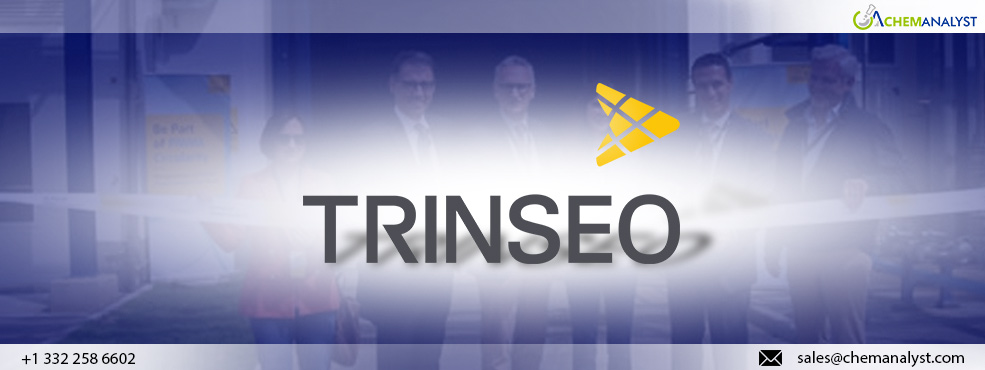Welcome To ChemAnalyst

Trinseo (NYSE: TSE), a leader in the polymer world, announced the launch of its polymethyl methacrylate (PMMA) depolymerization facility in Rho, Italy, on June 25. This pilot facility marks a pivotal advancement in the company’s sustainability efforts, aligning with Trinseo’s 2030 Sustainable Product Portfolio Goals. The cutting-edge recycling technology fosters a circular infrastructure for acrylic solutions.
Trinseo takes a significant leap forward in sustainable PMMA (polymethyl methacrylate) recycling with their new depolymerization facility. This state-of-the-art technology utilizes a continuous process to transform pre- and post-consumer acrylic waste into high-purity recycled MMA (methyl methacrylate), a key building block for new acrylic products. This innovative depolymerization technology, developed with insights from the MMAtwo Consortium—a collaborative project supported by the EU's Horizon 2020 research and innovation program—establishes a new value chain for recycling pre- and post-consumer PMMA. The process transforms this waste into premium regenerated monomer, offering a lower carbon footprint compared to virgin MMA. This advancement signifies a significant leap in sustainable materials management and circular economy practices.
In a statement lauding the opening of Trinseo's depolymerization facility, Francesca Reverberi, the company's sustainability champion (as both Senior Vice President of Engineered Materials and Chief Sustainability Officer), emphasized its contribution to a more circular plastics economy. She emphasized Trinseo's dedication to sustainability, underscoring their commitment to investing in innovative recycling technologies. This facility not only advances Trinseo's sustainability objectives but also supports their customers in achieving their own environmental goals.
Trinseo's advanced depolymerization facility specializes in producing recycled MMA (rMMA), a crucial component in their ALTUGLAS™ and PLEXIGLAS® R-Life product lines. This cutting-edge facility leverages innovative technology to ensure that the rMMA produced matches the quality of virgin raw materials. As a result, Trinseo can meet the stringent requirements of high-demand applications, such as vehicle taillights and caravan windows, where exceptional optical clarity is essential. By integrating rMMA into their products, Trinseo not only supports sustainability initiatives but also delivers high-performance materials that meet the rigorous standards of modern industries.
Han Hendriks, Trinseo's CTO, highlights the importance of their new depolymerization facility as a key step in their sustainability efforts. This advancement enhances their ability to use recycled feedstock, fostering innovation in creating new solutions. With this technology, Trinseo aims to develop a stronger portfolio of recycled acrylics, better catering to their customers' changing demands and promoting environmental responsibility.
Depolymerization, a chemical recycling process, breaks down acrylic solutions into the monomer methyl methacrylate (MMA). This technology complements traditional recycling methods, enhancing the recyclability of PMMA sheets, which previously could not be mechanically recycled. The process also removes additives and contaminants from pre- and post-consumer acrylic products, allowing for higher purity and greater recycling efficiency.
Trinseo's depolymerization facility produces recycled MMA (rMMA), which is incorporated into the ALTUGLAS™ and PLEXIGLAS® R-Life product lines. This state-of-the-art facility allows Trinseo to manufacture rMMA with quality on par with virgin materials, making it suitable for high-demand applications that necessitate superior optical clarity, such as vehicle taillights and caravan windows.
We use cookies to deliver the best possible experience on our website. To learn more, visit our Privacy Policy. By continuing to use this site or by closing this box, you consent to our use of cookies. More info.
